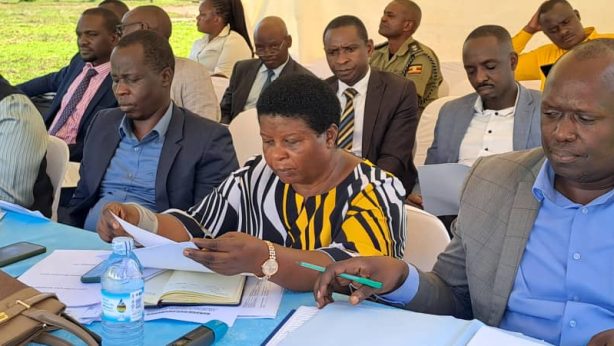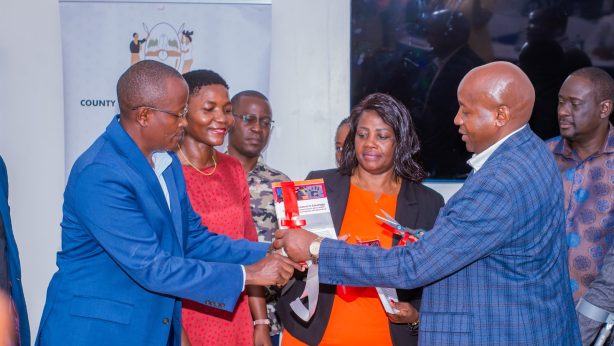In silence and solidarity? The role of CSOs in the response to COVID-19
To mark the Open Government Partnership’s Digital Forum Open Response + Open Recovery, Twaweza held an online debate. The motion for the debate was: This House believes that during this Covid-19 crisis, civil society in Tanzania must help by supporting government efforts to deliver much-needed services and resources, and stop criticising them. We held the debate to invite the sector to explore this issue with open minds. A debate pushes participants to interrogate their beliefs, to consider the arguments for their positions and to be more open to opposing points of view.
By the conclusion, we had converged on that the idea that the motion did not present a dichotomy. At the core, critique is a part of the important support that the civil society sector offers the government. There was unanimous support across the proposers and opposers of the motion that transparency was non-negotiable: government needs to provide accounting for funds and clear data on the progression of the pandemic to enable an effective whole-of-society response.
Those who opposed the motion took it further: the core function of civil society is to foster accountability. Civil society, they argued, cannot play the role of government, it has neither the mandate nor the resources to do so nor is it their function. Instead, civil society’s role is to ensure that services are delivered well to all. In fact, when civil society does step in to deliver services, it is indicative of government failure.
Civil society’s role includes pushing the government to develop a response strategy that includes the voices of experts and frontline workers as well as citizens’ experiences. And once there is a strategy, the sector has a role in critiquing that particularly in regards to accountability for funds.
A key question for the opposers of the motion was what civil society is even being expected to support in terms of a response? Is it sufficient? Is it compassionate? Is it inclusive? Civil society represents constituencies, and their role is to ensure these constituencies access government support and services fairly.
And indeed civil society covers more than just the traditional conception of professionalized non-governmental organisations. It includes academia and media, professional associations and trade unions. And professional associations have a unique role in this pandemic: if health workers’ bodies cannot tell the government where they are going wrong, how will they stay motivated and committed to the job?
The opposers of the motion were also concerned about establishing new norms and ways of working. If societies accept some reversal of rights now, these can easily become permanent.
The proposers of the motion were animated by two fundamental concepts. First, they emphasized the uniqueness of now, a time of crisis, a singular context. They highlighted the havoc Covid-19 has wreaked on countries around the world and called for solidarity with the government in a time of crisis. The government is truly struggling, systems are unprepared. How can civil society take swings at a time like this? They called on our shared humanity: when civil society sees struggling local governments, is now the time to attack or support?
A rallying cry using the language of war was invoked to emphasize the need for banding together and falling in line. ‘A common enemy’, a ‘time of war’, ‘the battle’.
Secondly, they raised questions about civil society’s role in society more broadly. In all civil society’s past work ‘criticising’ they queried, what has really been achieved? Things have happened despite these critiques and so why would civil society organisations choose now to pursue a strategy that is not only disruptive but also ineffective.
Some went further calling on civil society’s shared responsibility to stand for the people and their welfare. Civil society’s role was solely to provide information and humanitarian support. Anything else, they warned, and CSOs could face backlash from citizens. They highlighted the risks associated with deviating from the governmental approach and messaging.
Others were more nuanced. Perhaps civil society can criticize from the inside, they suggested. The approach is what matters, constructive criticism can be accepted if there are demonstrably positive intentions and leaders are sensitised to receive our comments.
The final thread was around legitimacy and representation. Government is the people so civil society needs to support them. They are the legitimate and elected representatives of the people.
Strong support for the proposers of the motion in this regard came from recent survey data that show almost all citizens are satisfied with the government’s response to Covid-19 including a majority who are very satisfied. If people feel that the government’s response is sufficient, it is unclear on whose behalf civil society is criticizing.
Similar proportions of citizens feel they have enough information about the virus. So citizens themselves, who are civil society’s primary constituencies are standing behind their government. Civil society needs to fall in line, according to the proposers of the motion.
A total of 88 people attended the 90-minute discussion. The winner was declared on the basis of how much the audience changed their mind: a poll was conducted at the start and end of the debate. The team who was against the motion took the day.
Overall, strong arguments were made on both sides. Most importantly it does seem people changed their minds. A moment of open space for engaging with the response to the crises of Covid-19.


